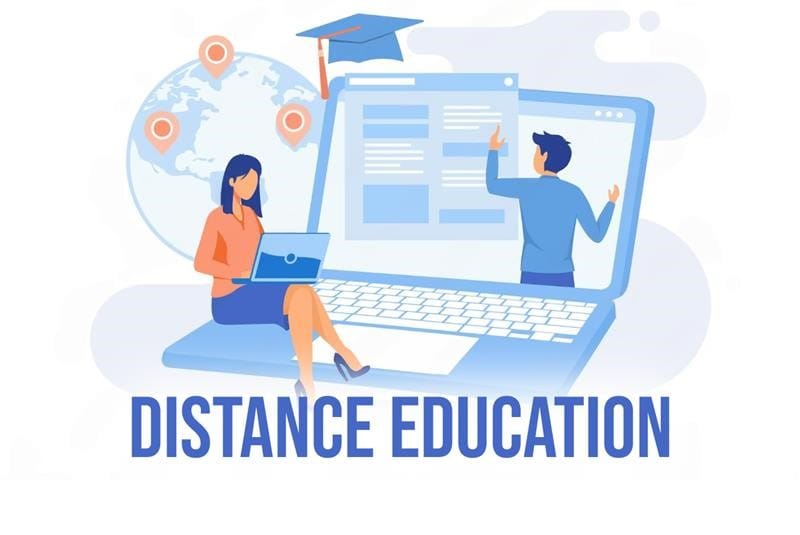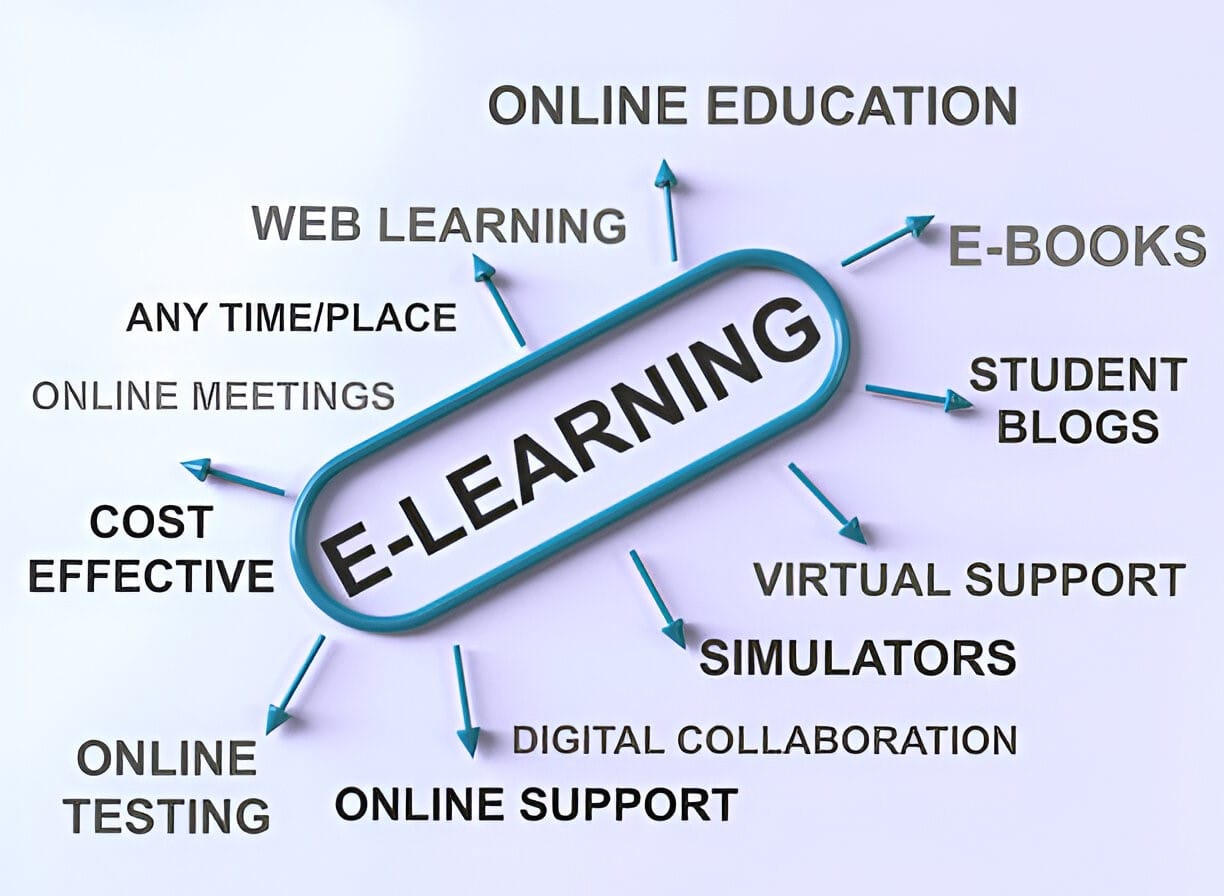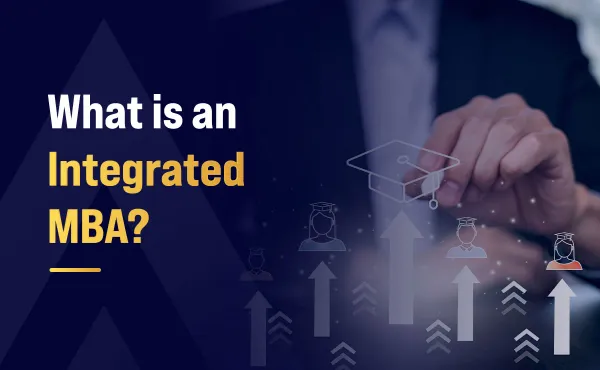Is a Distance Education Degree Valid?

Distance education has made a degree more affordable. The increased flexibility and technological advancements have made distance learning a viable alternative to traditional on-campus education.
However, students can't help but wonder whether a distance education degree is valid in the real world and whether it limits a student's opportunities compared to a regular degree. This article explores what a distance education degree is, how it compares to a traditional degree, and whether it is valid in India.
The real question isn’t just whether a degree is valid—but whether it leads to real opportunities. That’s why at Altera, we go beyond traditional education models to ensure our students are not only well-informed but well-placed. If you’re curious about how our programs support career outcomes—through mentorship, skill-building, and real placement support—explore more on our homepage.
What is a Distance Education degree?

A distance education degree is a program that allows students to pursue higher education without attending physical classes. The program does not require attending face-to-face lectures and seminars, and instead, it is provided online through digital means, online study, recorded lectures, or correspondence learning.
This mode of learning offers unmatched flexibility, enabling students to study from the comfort of their homes, complete assignments remotely, and take exams online or at designated centers.
Distance education also eliminates geographical barriers and helps connect diverse mentors from different time zones and continents. Individuals don't have to relocate, which is ideal for working professionals, students with personal commitments, and people who live in remote areas with limited access to traditional educational institutions.

Regular Degree Vs. Distance Degree
The obvious difference between the two modes of education is that regular degrees involve attending physical classrooms, and distance degrees rely on remote delivery of educational content via digital platforms.
Other than this, let’s look at other differences between the two modes of education to help students confidently decide which path is the right fit for them.
Categories | Regular Degree | Distance Degree |
Flexibility | Traditional face-to-face classroom learning with physical attendance in a college setting. | Remote learning is conducted through online platforms, printed materials, and virtual classes. |
Course Delivery | In-person delivery through lectures, workshops, and practical classes. | Delivered through online platforms, printed materials, e-books, videos, and webinars. |
Geographical Barriers | Students must relocate or commute to the institution, limiting access to local options. | No geographical constraints. Students can study from anywhere without relocating. |
Cost of Education | Generally higher due to tuition fees, commuting, accommodation, and campus facility costs. | More cost-effective as it reduces commuting, accommodation, and physical infrastructure expenses. |
Student-Teacher Interaction | Leverages interactive learning methods to offer real-time feedback and tailored guidance, fostering an engaging educational experience. | Limited interaction due to virtual and prerecorded sessions. Some programs include live sessions and webinars, enhancing interaction, and keeping students actively involved. |
Practical Knowledge | Provides hands-on experience through practical sessions and leveraging access to labs and fieldwork. This becomes especially essential for technical and science-related programs. | It has limited practical exposure restricted to simulations, virtual labs, or video demonstrations for practical learning. |
Recognition | Regular degrees are widely recognized by the University Grant Commision and other concerned government bodies, which is respected across industries. | Distance degrees are also accredited by the UGC and recognized by its Distance Education Bureau (DEB). |
Career Opportunities | Regular degrees typically have the upper hand, as they are preferred for certain careers requiring practical, hands-on training and traditional classroom learning. | Distance degrees are increasingly accepted, especially for roles that value skills and knowledge; however, some companies and roles still prefer regular degrees. |
Ideal For | Best for full-time students who can commit to regular attendance and benefit from structured, in-person learning environments. | Ideal for working professionals, students with family responsibilities, or those unable to attend physical classes. |
Pros and Cons of Distance Education
Distance learning is nothing less than a revolution, providing flexibility, affordability, and accessible education to learners worldwide. Distance education offers numerous advantages tailored to modern learning needs.
Hence, below are some of the significant benefits of distance learning, making it an ideal choice for students of all backgrounds.
Advantages

1) Flexibility and Convenience:
Distance learning has enormous flexibility as one of its greatest advantages. Distance learning also gives students the flexibility to study at their own pace, unlike traditional education, which has fixed timetables.
- Balance Work, Family, and Education: Working professionals and parents can pursue their studies while managing other responsibilities.
- Save on Commuting and Relocation: Distance education eliminates the need to move or spend time and resources traveling to a physical campus.
- Study Anytime, Anywhere: Learners can conveniently access course content and lectures from home, the workplace, or any location with internet access.
2) Cost-Effective Learning Solutions:
Distance learning programs are also cheaper, hence cheaper in comparison to traditional education. It does away with a lot of costs incurred in regular degrees, which include:
- Transportation Costs: No daily commuting saves both time and money.
- Accommodation Expenses: Students don’t have to relocate or pay for campus housing.
- Campus Facilities Fees: Distance learners don’t need to pay for physical infrastructure like libraries, labs, or recreational facilities.
Also, several online and distance learning institutions provide:
- Scholarships and Financial Aid: Scholarships and financial aid programs aim to ensure that quality education is accessible to more people.
- Flexible Payments: Students can pay tuition in instalments, relieving them of financial pressure.
This is economical so that all people can access and afford quality education.
3) Self-Paced Learning:
Distance education will enable the learners to study at their own pace in accordance with their personal needs and learning styles. As compared to the normal programs, which have tight deadlines, distance learning has:
- Asynchronous Learning: Recorded lectures and downloadable materials enable students to access content at any time.
- Personalized Study Plans: Whether you want to complete a program quickly or take your time, distance education lets you manage your learning without feeling overwhelmed.
The method will enable learners to master the content without unnecessary pressure, resulting in a profound understanding.
4) Access to Global Opportunities:
The elimination of geographical barriers through distance learning opens the gates to the best education in the best universities without the need to transfer students. Learners can:
- Take up courses in the most reputable universities in the world.
- Gain exposure to international teaching methodologies, experts, and resources.
This availability enables one to obtain higher education anywhere, increasing his or her chances of academic and career development.
5) Enhanced Learning Through Technology:
The introduction of advanced digital technologies and tools has made online education more interactive and engaging in the learning process. Key features include:
- Learning Management Systems (LMS): Platforms that centralize course materials, assignments, and assessments.
- Multimedia Content: Webs, Videos, e-books, simulations, and interactive modules can help to make the learning process dynamic and enjoyable.
- Web-Proctored Tests: Online tests conducted through web proctoring allow students to take tests wherever they are, without having to go to exam centers.
Education based on technology also provides students with high-quality education like what they would get in a classroom environment.
Distance learning has enabled students to stay competitive, acquire high qualifications, and build their careers and other aspects of their lives without straining their lives with other responsibilities.
Disadvantage:
1) Difficulty Staying Motivated:
One of the biggest challenges of distance education is maintaining self-motivation. Lacking the structured environment of a physical classroom, students must rely on self-motivation to maintain their progress.
This is why students may often slack off in their studies: there are no teachers or classmates to remind them of assignments, leading to procrastination and forgotten deadlines. Lack of structure can leave students self-disciplined and motivated, which they may struggle with.
2) Less Contact with Teachers and Mentors:
Conventional classroom environments give students a chance to ask questions before, during, or after class, or to make an appointment to see their mentors separately. This degree of personal closeness, however, is usually lacking in distance learning.
Students can also experience delays in receiving responses to their questions, which can be inconvenient, especially when the assignment or project has a deadline.
3) Connectivity Incapabilities:
Distance learning is closely associated with the internet and technology, and not every student has equal, uninterrupted access to them. Individuals in rural areas or with unstable internet may encounter difficulties attending online classes, handing in assignments, or accessing study resources.
Also, technical faults such as computer failures or power interruptions may cause learning to halt, leaving students behind in their studies.
4) Difficulty Getting Immediate Feedback:
Unlike traditional classrooms, instant feedback on assignments, presentations, or questions during class is often delayed. It is because students often have to wait for their instructors to review and respond to emails or upload assignments.
This delay can slow down the learning process, especially when students need timely feedback to make changes before a deadline. For those who rely heavily on guidance, this lag in communication can be a significant disadvantage.
Is an Online Degree Equal to a Regular Degree?

Yes, an online degree is equivalent to a regular degree, provided it is obtained from a UGC (University Grants Commission) and DEB (Distance Education Bureau) recognized institution. Although there are some distinct differences in delivery between regular and online degrees, these differences do not compromise the authenticity, validity, or value of an online degree.
The University Grants Commission (UGC), a statutory institution under the Ministry of Education (MoE), has made it clear that degrees obtained through online or distance learning programs are equivalent to those obtained through on-campus programs. The essential condition is that the institution offering the degree must be approved by both UGC and DEB.
As per UGC guidelines, degrees obtained through recognized online and distance education programs are equally valid for employment or higher studies in both the private and government sectors. Employers or universities cannot reject candidates on the basis of their having an online or distance degree.
Pros and Cons of a Regular Degree
Regular degrees are offered through systematic classroom instruction and a concentrated learning environment. This form of education is regarded as the gold standard by most students because of its easy career progression, practical training, and energetic campus life.
We will discuss the advantages and disadvantages of having a regular degree.
Advantages:
1) Focused Career Path
The undergraduate programs offer an easy and systematic way to a particular career. These are well-planned programs that incorporate specific courses to help students acquire the knowledge and skills they need for their desired career.
Its narrow scope prepares students to enter their professions with confidence, as they are sure they have been trained in the key aspects that will make them successful in their careers.
2) Real-World Experience
In most traditional degree programs, practical training, an internship, or a capstone project is included in the curriculum. Practical learning programs give students practical skills and a practical understanding that are greatly valued by employers.
Whether it is lab work, field projects, or professional internships, students gain practical knowledge that makes them more employable and equips them to handle job responsibilities.
3) Wide Recognition and Credibility
Degrees granted by accredited institutions are highly valued and are generally accepted by employers within or outside the country. The traditional degree is an indication of a solid grounding in the preferred course, and it reflects the seriousness of the student in the learning and academic discipline. This recognition may become a significant element in competition for high-demand positions or higher learning.
4) Campus Community and Networking Opportunities
The possibility of belonging to an active campus is one of the largest benefits of a regular degree. On a daily basis, students can interact with professors, classmates, and mentors. Being involved in extracurricular activities, events, and academic clubs helps build long-term friendships and professional connections.
The networking that is facilitated in the course of a degree program not only helps in personal development but also plays a very important role as a source of much-needed career advice, job leads, and professional development.
Disadvantages:
1) Lacking in Emerging Fields:
Although conventional degree programs equip students with knowledge applicable to specific professions, they do not necessarily account for the unpredictable changes in the employment sector and the emergence of digital-first careers such as performance marketing, eCommerce, artificial intelligence, and others.
If a program contains obsolete data, graduates may need further training after completion to meet emerging industry requirements.
2) Time and Financial Investment:
Completing a regular degree is usually a time and money-consuming undertaking. The students are required to follow specific timelines that can last for several years, and thus, those who have to work or have family obligations cannot follow them.
There are also other costs associated with tuition, accommodations, transportation, and campus facilities, which may increase the burden of traditional degrees on certain students.
3) Less Flexibility:
The traditional classroom model may not be ideal for everyone. For working professionals, individuals with families, or students living in remote areas, attending physical classes can be challenging. The rigid structure of regular degree programs may not accommodate the needs of individual students and their schedules, which online or distance learning programs offer.
Is a Distance Education Degree Valid for Government Jobs and Exams?

Yes, a distance degree is fully valid for government exams, provided it is obtained from a recognized university with the necessary approvals. Degrees acquired through Online or Open and Distance Learning (ODL) methods hold the same legitimacy as regular degrees when applying for government jobs or appearing for competitive examinations.
To ensure the validity of a distance degree, it is essential that the university offering the program has approval from the University Grants Commission - Distance Education Bureau (UGC-DEB). This approval guarantees that the institution meets the necessary standards for delivering distance education. Students should verify their university's recognition before enrolling to avoid any issues later.
As per official notifications, degrees, diplomas, and certificates obtained through open and distance learning are automatically recognized for employment in central government positions. However, this depends on whether the institution is established under an Act of Parliament, recognized as a university under Section 3 of the UGC Act, or classified as a national institution of importance by Parliament.
FAQs:
Q1. How is a distance education certificate different from a regular certificate?
Ans: A distance certificate is obtained through online or distance learning courses, which are flexible and self-paced. A basic certificate is awarded in on-campus programs with organized schedules. They are both valid, but the delivery method varies.
Q2. Is distance education valid for private jobs?
Ans: Yes, having a distance degree will get you both private and government jobs, provided it is from a UGC-DEB-approved university. Distance degrees are accepted by employers in the government and the private sector, as long as you satisfy the job requirements with regard to skills and expertise.
Q3. Does a distance degree have value?
Ans: Definitely, a degree in distance learning could be as good as a traditional degree, provided the institution is recognized. Also, degrees in distance education are acceptable for foreign studies, university studies, government examinations, and employment in other countries worldwide. It is not the mode of learning but the skills and knowledge.
Conclusion
Distance education has brought about a revolution in higher education through exceptional flexibility, affordability, and accessibility to students worldwide. Although it differs from standard degrees in terms of delivery and interaction, it is equivalent to those obtained from reputable institutions.
Distance degrees are increasingly accepted by employers and can be used to pass government exams, making distance education a viable option for students, working professionals, and others who are otherwise committed to their lives.
By understanding the benefits, challenges, and recognition of distance learning, students can make informed decisions that align with their career goals and lifestyle. Ultimately, success depends on dedication, skills, and the ability to leverage the opportunities provided by distance education.





